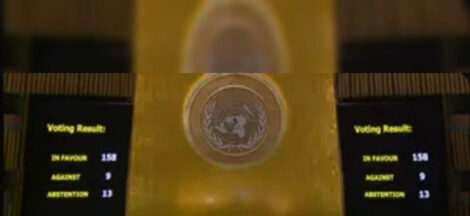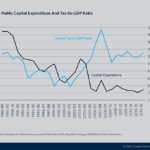Threat perception of electoral dissipation in the 2026 assembly election and the resolve of the RSS cadres and leaders not to undertake electioneering in West Bengal unless the party president J P Nadda apologises for his Lok Sabha election eve remarks against the RSS, has finally forced the state BJP leaders to have a two-day long meeting with the state RSS leaders.
The importance of the two-day meeting could be gauged from the simple fact that almost all the state BJP leaders were present to sort out their differences with the RSS and provided an undertaking that they would abide by the directives of the Sangh. Even the turncoat leaders did not muster courage to oppose the stand of the RSS. The electoral exigencies could be made out from the fact that all the 27 frontal organisations of RSS were present at the meeting.
The meeting held in Uluberia of Howrah, is significant for the reason that it would send a positive message to the rural voters. Yet another reason that made the BJP to hold the joint coordination meeting has been the fact that the suburban areas of Kolkata have significant supporters and followers of the party in the lower middle class and intermediate migrant castes. These areas have sufficient number of RSS karyakartas (cadres).
Insiders maintain that state BJP leaders were the targets of the RSS functionaries, who charged the former with neglecting the task of the party building and simply being concerned with their personal gains and benefits. The leaders of these frontal organisations sought to know from the BJP leaders what was their contribution in strengthening the party at the base level and what they have done to reach out to the poor Hindus and voters of the state.
They were also asked to clarify what they had done to win over the trust of the Bengali people, and whether they had made any inroads into the Bengali aristocrat section. This is the class which plays the crucial role in building positive political narrative and thus expand support base among all sections of Bengali society. It was pointed out that though this section was not happy with the functioning of Chief Minister Mamata Banerjee and her government, it has not yet distanced itself from her. While the Mamata government has not performed to the satisfaction of the common people, and especially to liking of the upper strata of the Bengali society, the BJP leadership had as yet failed to exploit the performance gap and win over the people.
Mamata Banerjee had virtually finished off the Congress in the state. Almost all the TMC cadres and leaders are old Congress workers. They were averse to the state Congress leaders joining hands with the CPI(M), which was why they had followed Mamata in her endeavour to float TMC. However, now in a changed situation, with Rahul Gandhi unwilling to go along with CPI(M), has been motivating some of these old workers to come back to Congress. It is worth mentioning that Congress won one Lok Sabha seat and got around 7 percent of the popular vote in Bengal. In 2021 assembly election, the Congress had secured only 2.38 per cent. The RSS leaders also pointed out that BJP has lost around 4 per cent of its vote in 2024, which it had got in 2019.
The RSS insiders maintain that dynamics of intense differences between the RSS and the BJP has forced the national leadership to intervene. Initially, the turncoats led by the leader of opposition in the assembly, Suvendu Adhikari, had fed the central leadership with the impression that everything was fine and they were in command of the situation. They had even assured them that the saffron ecosystem would succeed in defeating Mamata Banerjee’s TMC. But the 10-day visit of RSS chief Mohan Bhagwat had exposed them.
At his meeting with the RSS cadres of south and central Bengal, Bhagwat had come to comprehend from the briefings by the Sangh cadres, that BJP would not even be able to keep the seats it had won in2021 elections. This time its seats may even decline to 30 from the present 77. This scenario has been indeed a matter of serious concern for the RSS, more than the BJP. In the defeat of BJP, the RSS will lose its support base and that would also symbolise shifting of its cadres to the TMC.
RSS is omnipresent. During the ten-year rule of the BJP government, it has penetrated deep in to the police, military, judiciary, bureaucracy and academic sectors of the country. All the frontal organisations have accomplishing their missions diligently. Though Modi has been harping on political slogan of Hindutva, the strategy of RSS to engage the people at psychological level has been most dangerous for the secular and democratic forces. The RSS has been achieving its mission through cinema and literature. This has aroused the communal passion amongst the Hindus to an unbelievable level.
RSS leaders want to capture power in Bengal as it enables the Sangh to bring Bengal’s culture and social tenets under its control and thus dictate its course. Bengali society is still relatively liberal and open. Unless it is regimented, the RSS cannot aspire to rule over the entire east as well as north India. To depend on the turncoats is its compulsion. RSS leadership has been actively interfering in the political activities and ensuring the victory of BJP in various elections at the national and state levels, even though the RSS continues to project itself purely as a cultural organization.
The painstaking initiative that RSS undertook during the Haryana, Maharashtra and Delhi elections has strengthened peoples’ perception of it being an active political tool. Nevertheless, RSS hangs on to the image of the Sangh being an ‘apolitical’ and ‘cultural’ organization, with nothing to do with the BJP’s election efforts or its decision-making process. Its participation in the electoral process would also be projected as a mechanism to protect and strengthen the cultural and social ethics of the Hindu society, than working to ensure the victory of BJP. It is this compulsion of winning the assembly elections of Bihar and Bengal that has forced the RSS to adopt a more obliging stance. (IPA Service)




 India Will Have To Work Very Hard To Increase Its Growth Rate
India Will Have To Work Very Hard To Increase Its Growth Rate 